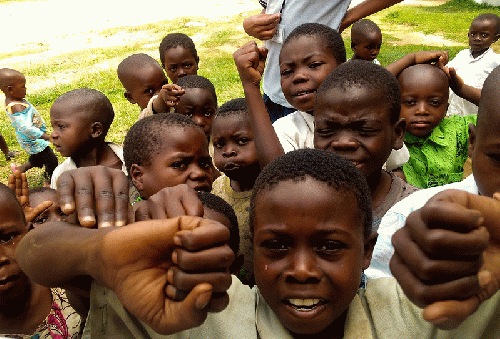The United States has condemned growing violence in the Democratic Republic of the Congo (DRC), blaming an armed group it says is backed by neighboring Rwanda. Fighting has again flared in recent days in the eastern part of the DRC between the M23 rebel group and government forces, resulting in dozens of soldiers and civilians being killed or wounded.
Eastern Congo has struggled with armed violence for decades as more than 120 groups fight for power, land and valuable mineral resources, while others try to defend their communities. The armed groups have long waged campaigns of violence in the mineral-rich region and have been accused of mass killings.
Congolese President Fe'lix Tshisekedi repeated his claims earlier this month that M23 is supported by Rwanda, and said he would not engage with Rwanda's leader, Paul Kagame, over the issue.
The fighting has also pushed tens of thousands of civilians to flee towards the eastern city of Goma, which is located between Lake Kivu and the border with Rwanda.
With multiple diplomatic efforts failing to quell the violence in DRC, the continent's leaders were expected to discuss the conflict at the 37th African Union summit taking place in the Ethiopian capital Addis Ababa.
In the wake of the heightened violence, the UNHCR, the UN Refugee Agency, is deeply concerned by the dire consequences for civilians, including an estimated 135,000 internally displaced people fleeing the town of Sake towards Goma.
UNHCR and partners are deeply alarmed by reports of bombs falling on civilian locations, including in the Zaina site in Sake and the Lushagala site in Goma, where as many as 65,000 internally displaced people are sheltering, raising significant concerns for their safety. Goma stands between Lake Kivu and the Rwandan border and is practically cut off from the country's interior.
The escalating use of heavy artillery and shelling in clashes around Goma poses grave threats to civilian and displaced populations, threatening more casualties and the destruction of buildings used as communal shelters. The presence of unexploded ordnance poses a particular threat to children. Since the first week of February, at least 15 civilians have been killed and 29 injured around Goma and Sake.
"This escalation has increased the risk to millions of people already exposed to human rights abuses including displacement, deprivation, and attacks," US State Department spokesman Matthew Miller said in a statement.
"The United States condemns Rwanda's support for the M23 armed group and calls on Rwanda to immediately withdraw all Rwanda Defense Force personnel from the DRC and remove its surface-to-air missile systems, which threaten the lives of civilians, UN and other regional peacekeepers, humanitarian actors, and commercial flights in eastern DRC," Miller added.
On Saturday, the DRC accused Rwanda of carrying out a drone attack that damaged a civilian aircraft at the airport in Goma.
"It had obviously come from the Rwandan territory, violating the territorial integrity of the Democratic Republic of the Congo," Lieutenant-Colonel Guillaume Ndjike Kaito said in a video broadcast.
If the drone attack targeted military craft, as the army has said, it shows that M23 rebels are capable of more advanced attacks than the Congolese government may have expected.
The DRC has for decades been at war with many rebel groups that emerged in its resource-rich eastern region in the aftermath of the Rwandan genocide.
M23, which broke away from the DRC army in 2012, says it is fighting in defense of ethnic Congolese Tutsis who face tribal discrimination in the DRC.
(Note: You can view every article as one long page if you sign up as an Advocate Member, or higher).





